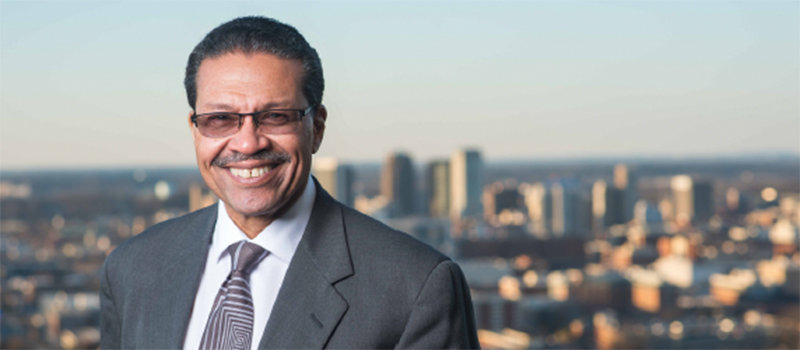
Carl E. Dukes, MD, calls his decision to train in internal medicine at UAB “the best move I ever made.” That gratitude led him to invest in helping UAB train a physician workforce that reflects a diverse society.
The Carl E. Dukes, MD, Minority Residency Pipeline Endowed Support Fund aids UAB’s effort to recruit the most qualified minority residents by offering opportunities, instruction and guidance – the same benefits he received during his training.
Dr. Dukes came of age in Atlanta in the 1960s and was deeply influenced by the events of the time. He grew up among the children of faculty at Morehouse College and Spelman College – in his words, “Men and women who had received doctorates from top-tier universities like Harvard, MIT, and Berkeley. This exposure reinforced my sense of confidence and purpose, so I never really thought of myself as being intellectually or culturally inferior.”
After graduating from a segregated high school in 1967, Dr. Dukes studied theoretical mathematics at Cornell University and attended medical school at the University of Rochester. “My chief of medicine was really excited about what he described as a fantastic clinical program that was under the tutelage of one of his dear friends, Dr. Thomas N. James (Chair of Medicine at UAB from 1973-1981),” he recalls. “You can imagine my surprise when he told me the program was in Birmingham, Alabama. I had spent the past eight years trying to get north of the Mason-Dixon Line.”
“The clinical program was so strong and they trained you so well,” he adds. “I am of the Tinsley Harrison school, which means I can actually use my stethoscope. I know what a heart sounds like; I can do a physical diagnosis. In the days before CT scans and other technology, we had to be very adept clinicians. And we were fortunate enough to learn from the best.”
Dr. Dukes completed residency in 1979, and was UAB’s first African-American chief medical resident. He followed his UAB mentors Thomas E. Andreoli, MD, Stephen G. Rostand, MD, and Edwin A. Rutsky, MD, into nephrology, first in Houston and then San Antonio, where he operates a dialysis center.
“The training I received at UAB has kept me heads above other clinicians since I’ve been in practice,” he says. “And my clinic has been very successful. I’ve been very blessed.”